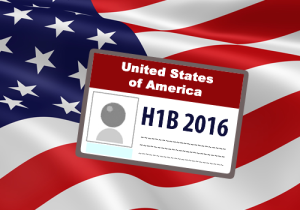Section 204(j) Portability
Section 204(j) provides that an approved Form I-140 petition for certain classifications remains valid for adjustment of status when an applicant switches jobs or employers if:
- The adjustment of status application has been filed and remains unadjudicated for 180 days or more, based on an employment-based immigrant visa petition AND
- The new job is in the “same or a similar occupational classification” as the job for which the petition was filed.
A new policy memorandum has been issued to assist immigration officers in determining what qualifies as a same or a similar occupational classification and which evidence should be used in making that determination. They are instructed to examine the job duties of the former and new job and skills, experience, education, training, licenses, and certifications required. Wages can also be important. The policy memorandum also repeats that a preponderance of the evidence standard is to be utilized.
Immigration officers are supposed to treat evidence favorably if the applicant establishes that the previous and new job are within the same broad occupation code in determining whether the two positions are similar. The memo gives the example of Computer Programmers, Software Developers Applications, Software Developers Systems Software, and Web Developers being found within the same broad occupational group of Software Developers and Programmers. It also gives warning: just establishing that the two jobs are described within the same broad occupation may not be enough for the two jobs to be in similar classifications for a preponderance of the evidence.
Of note, the memo dedicates analysis to career progression. It continues the analysis under the totality of the circumstances and preponderance of the evidence guidance. The analysis may be more straightforward when the promotion is to a more senior position that does not involve managerial or supervisory duties. The analysis becomes complicated when that transition is to a position that involves a managerial or supervisory role.
For that second scenario, the memo instructs that if the applicant establishes in the new job that she will be “primarily responsible for managing the same or similar functions of their original jobs or the work of individuals whose jobs are in the same or similar occupational classification(s) as the applicants’ original positions, the immigration officer can treat that evidence in the applicant’s favor for determining similar occupational classifications. The example used is a cook advancing to a food service manager. A food service manager supervises restaurant cooks and other individuals in similar positions.
There may also be situations where a normal career progression does not involve managing persons in jobs that in the same or similar occupational classification as the applicant’s original position. The example used is a cook that becomes a food service manager, while retaining many of the original job duties. That position may be devoid of supervisory duties, but the applicant would be able to demonstrate similar occupational classifications based on functions.
The memorandum is lengthy and detailed, delving into many scenarios that immigration officers encounter as they adjudicated portability petitions. Portability is an important provision of the AC21 law enacted in 2000. The express purpose of that law was to increase job flexibility for foreign workers who are stuck in delays and backlogs in the employment-based immigrant visa process.
